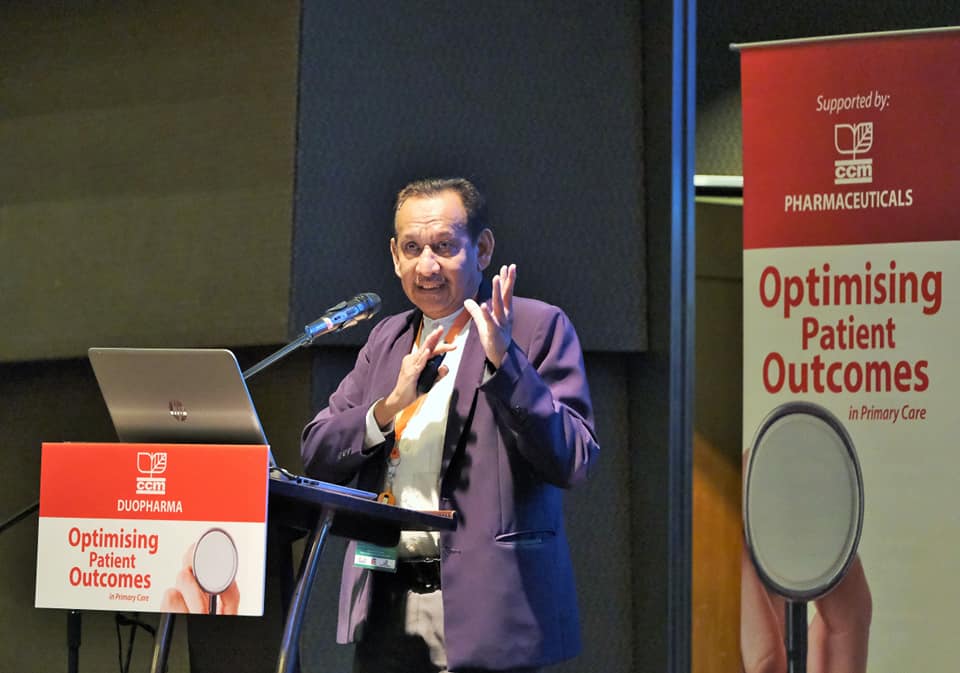KUALA LUMPUR, April 4 — Doctors’ and pharmacists’ groups voiced support for the government’s plan to regulate drug prices that has been opposed by the pharmaceutical industry.
Citizens’ Health Initiative (CHI), which comprises doctors, economists and analysts, cited a 2012 article in British medical journal The BMJ that questioned the purported billion-dollar cost of discovering a new drug, as it found that pharmaceutical companies reportedly spent just 1.3 percent of revenues on basic research to find new molecules.
“Affordable access to healthcare (including drugs) is a fundamental human right, and it is entirely proper and legitimate for the government to resort to measures like price controls and compulsory licences in ensuring that,” CHI member Dr Chan Chee Khoon told CodeBlue.
“This article in the British Medical Journal disputes the self-serving arguments aired by drug companies and pharmacists at the Pharmacy Renaissance Summit 2019.”
Pharmaceutical companies and the Malaysian Community Pharmacy Guild (MCPG) recently objected to the Health Ministry’s plan to introduce price controls for drugs, arguing that such regulation could inadvertently make medicines more expensive instead.
Pharmaceutical Association of Malaysia vice president Allen Patino, who is also AstraZeneca Malaysia country president, had claimed that medicines were expensive because the average cost of developing a new drug was US$2.8 billion, while only one or two out of 10 drugs developed reached the market.
Health Minister Dzulkefly Ahmad told the press Tuesday, after meeting pharmaceutical industry players in a town hall to discuss price controls, that his ministry hoped to impose price controls for medicines by this year, but did not specify which mechanism it was considering.
When asked which price control mechanism Malaysia should consider, Dr Chan mentioned Australia’s therapeutic group premium, in which different drugs used to treat the same ailment and which do the same thing are grouped into one therapeutic group.
According to the Guardian, the Australian government subsidises the cheapest medicine within that therapeutic group, which then pressures pharmaceutical companies that create the priciest drugs in that group to reduce prices.
Malaysian Pharmaceutical Society (MPS) president Amrahi Buang similarly supported price controls for medicines and also proposed a floor price, besides a ceiling price, to prevent undercutting among community pharmacies.
“MPS is very concerned with the disparity of medicines between public and private facilities and also between private hospitals, private clinics and community pharmacists,” Amrahi told CodeBlue.
“There is a lack of transparency and itemised billing which is not fair to the consumers. The consumers have the right to know about the price of each medicine dispensed or supplied to them,” he added.
Amrahi also highlighted the Health Ministry’s proposed “track and trace” system to monitor profiteering along the pharmaceutical supply chain.
“In this respect, the Ministry of Health will have to work hand in hand with the Ministry of Domestic Trade and Consumers Affairs. MPS has also proposed to the government to legalise the Good Pharmaceutical Trade Practice (GPTP) guidelines for better compliance,” he said.
The GPTP guidelines under the Malaysian National Medicines Policy, which were released in 2015, aim to harmonise trading practices between pharmaceutical distribution channels to improve fair pricing and access to medicines.
Among others, the guidelines urge suppliers to notify distribution channels and the Health Ministry before revising prices and to provide a wholesale price list to the ministry annually.
“MPS has on many occasions proposed to have an integrated healthcare system,” said Amrahi.
“The current dichotomous state of the healthcare of public and private has caused a lot of problems to both sides of the divide and medicines pricing issue is just one of many. There is no universal health coverage in Malaysia as defined by the WHO (World Health Organisation).”
According to a Harvard University study titled “Malaysia Health Systems Research Volume I” published in 2016, government procurement of drugs in Malaysia was on average three to four times more expensive than the international reference price (IRP) for the 2010-2014 period. IRP is the median price of a pharmaceutical product purchased by governments in a range of countries that is used as a benchmark.
A 2018 study by researchers from the Health Ministry’s Pharmaceutical Services Division and from Universiti Kebangsaan Malaysia found that generic medicine had price markups from wholesale to retail of between 31 percent and 402 percent during the 2011-2015 period in the private sector, while price markups for innovative drugs were lower at 24 percent to 86 percent.
They found that drug price markups were typically higher in private hospitals, where treatment is usually borne by insurance companies, than in community pharmacies that charge competitive prices to attract individual customers.








